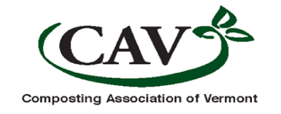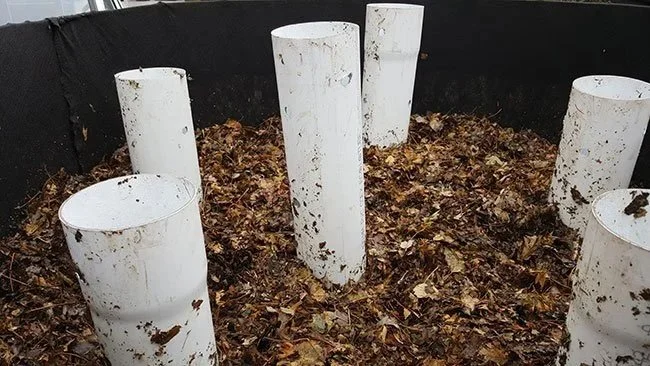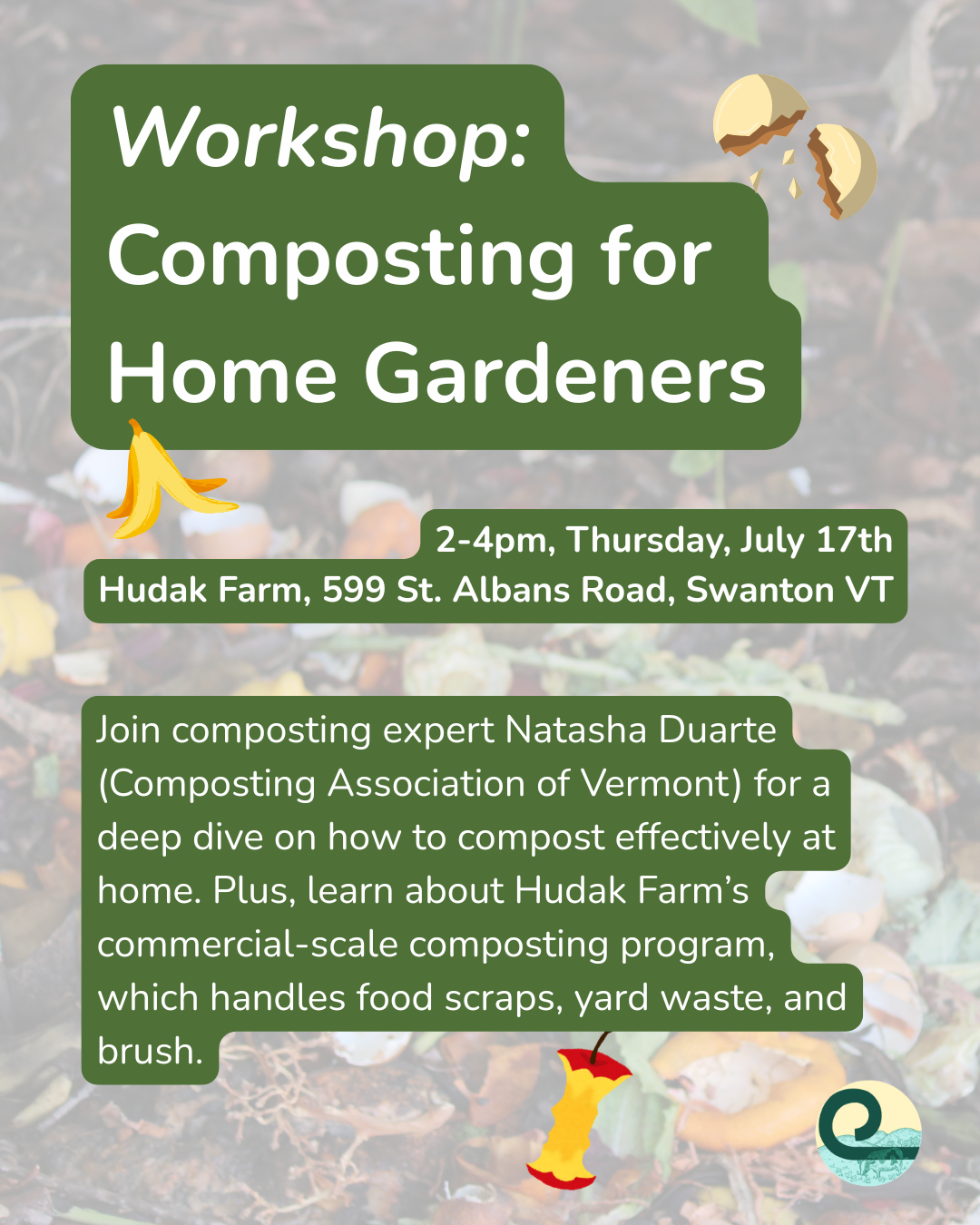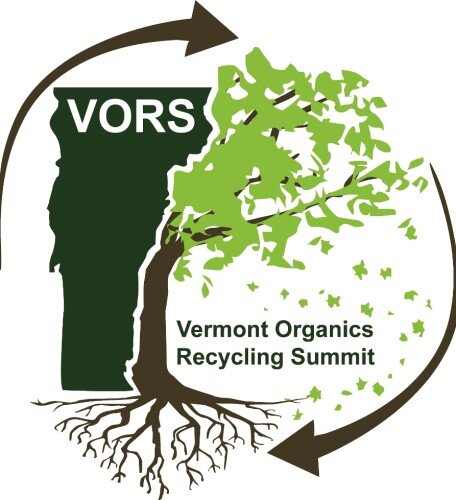Composting 201
The Best Practices for the Use of Compost in Vermont Towns
Sustainable Site Design and Land Management
Knowledge about producing and using compost no longer applies only to gardeners. The alchemy of composting results in a superb, biologically rich material that can clean and conserve water and control soil erosion. Composting and the use of compost can also contribute to public health and safety, farm viability, and the direct immediate reduction of greenhouse gases. When added to soils, the structure and web of organisms in compost increase soil stability, fertility, and moisture retention. As towns, regions, and entire states move towards banning organic ”waste” from landfills, there is also a growing awareness of the connection between how we design and maintain the natural elements in built environments and our carbon footprint.
While there is general understanding that compost and composting are ‘good,’ there is a knowledge gap about specific benefits and how to modify current farming, site engineering and landscaping practices to produce those benefits. This workshop provides compost related ecoliteracy for Vermont decision-makers, professionals and advocates working with communities and businesses to adopt best practices. In this workshop you will learn how to achieve environmental and economic benefits from the use of compost in development, road construction, landscaping, and land management projects.
Topics in this 4-hour workshop include:
Organic matter and soil: Biology overview
Landscaping applications – specifications and standards for using compost in:
LID (low impact development)
Turf management
Maintaining healthy trees and shrubs
Disease suppression
Compost as part of stormwater management
Compost products for erosion control and post construction site stabilization
Compost quality/buying compost
Designing for onsite composting
Workshops include small group work to develop ‘action plans’ to use compost in landscaping, land development, road maintenance and land management projects.
Schedule a workshop for your group
Please contact Natasha Duarte, info@compostingvermont.org 802-373-6499 to discuss.
Workshop Fees
$500 plus transportation
Instructors Bios
Brian Jerose, is a principal and environmental resource consultant for WASTE NOT Resource Solutions and Agrilab Technologies. He has over 20 years experience in the conservation and environmental field with expertise in resource recovery, composting, sustainable economic development, technical training, and watershed management. He coordinated implementation of a thermal heat recovery system from composting manure at Diamond Hill Heifers in Sheldon, Vermont, the largest project of its kind in North America. Brian has a BA in Political Science with a minor in Environmental Studies, and an MS in Environmental and Resource Engineering from SUNY College of Environmental Science and Forestry, Syracuse, NY.
Robert Spencer, AICP is a consultant with over 25 years experience in land use and water quality planning, as well as development and operation of composting facilities. His projects have included working with federal and regional planning agencies and developing public/private partnerships. Bob currently works part-time for Mass Natural, a composting company in Westminster, Massachusetts and is the Director of the Windham Solid Waste Management District. Bob is also a Contributing Editor for BioCycle magazine, and continues to provide consulting and training services to communities, states, and companies. He has a BS in Biology, and an MS in Resource management and Policy from SUNY College of Environmental Science and Forestry, Syracuse, NY.
Workshop Agenda (click here)






